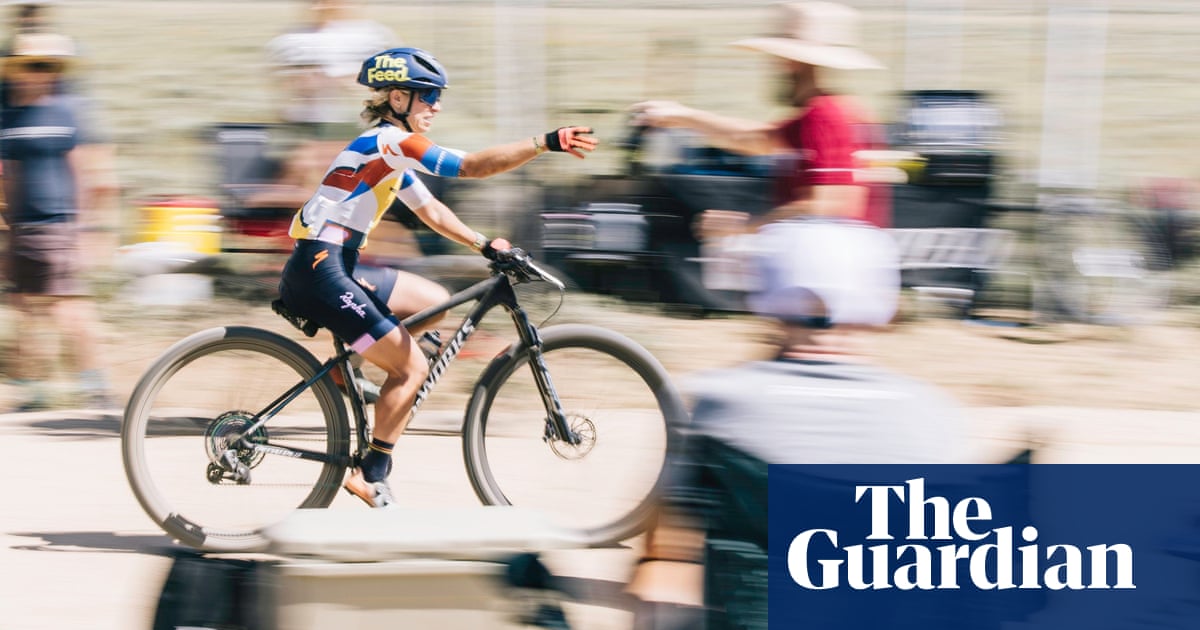Talented teenage drivers Gabriel Berg and Cormac Nisbet have given up on their dream of professional racing and left the Soudal Quick-Step development team. They admit that the fears and pressures of sport have made them unhappy and are looking for a different life.
Luckily, both had the courage to stop racing before major problems arose. Both were grateful to the Soudal Quick-Step development team for their support during their racing careers and after their decision to leave the team.
In recent years, as teams search for the next Tadej Pogačar or Remco Evenepoel and sign riders straight from the junior ranks, riders at increasingly younger ages have dedicated their lives to racing and training to achieve their dreams. For some teenagers. it has become a traumatic experience.
Berg, who comes from the Paris suburb of Montigny-le-Bretonneux, shared his emotional fears in a lengthy interview L’Equipe on Friday. The British Cormac Nisbet announced on Instagram a few weeks ago that his professional dreams had been dashed.
“I have come to terms with the fact that the lifestyle I once dreamed of as a child was no longer a future I wanted to pursue – it did not bring me happiness,” Nisbet said.
“For this reason, I have decided to retire from racing at this level and have subsequently mutually agreed to resign from the Soudal Quick-Step Devo team with immediate effect.”
Nisbet finished third in the 2023 Junior Tour of Wales and had already raced in Europe thanks to the Zappi Racing team. His dream of professional racing faded during the 2024 season, but he was able to recall the good memories of his short racing career.
The latest racing content, interviews, features, reviews and expert buying guides straight to your inbox!
“For as long as I can remember, I have had one big goal in life: to become a professional cyclist. No matter what happened outside of that goal, cycling gave me the discipline, focus and separation to pursue that goal. It was worth it. “He touched me in ways I never thought possible and challenged me to blood, scars and tears,” he wrote.
“Cycling is a roller coaster ride and the highs are fewer than the lows. Yet every moment – good or bad – has made me a stronger and greater person. Mentors who have guided me through the difficult situations have given me opportunities and faith, even though most of them have not.
Nisbet thanks his family and friends, his trainer and the Soudal Quick-Step Devo team for their support. On his LinkedIn page, he revealed that he is already working as a trainee associate consultant at the management consultancy Insider Pro and has set himself the goal of becoming a long-distance triathlete in 2025.
“At the end of a chapter, I can’t wait to start a new one. Cheers, cycling,” he ended his message with a “❤️,” a sign that he had quit in time to remain committed to cycling.
Berg said L’Equipe and wrote on his Instagram page that he decided to quit the sport before the fears and pressures of sport consumed him. He now hopes to race at the local level in 2025.
“I have made the decision to stop cycling at the highest level and return to the cycling I loved with fewer headaches, fewer limitations and perhaps even more enjoyment,” Berg wrote.
“I love cycling and it was a dream of mine to become a professional, but this year I realized that it wasn’t necessarily the right thing for me because I had to make a lot of sacrifices, spending time away from my loved ones, having repeated crashes , was constantly tense and had little time to do anything else.
Berg told L’Equipe that seeing other drivers seriously injured in accidents affected him and how the deaths of his former teammate Thomas Bouquet and Andre Drege, who he raced against, affected him.
Berg broke his wrist in the summer and the weeks away gave him time to think about his career.
“Today it’s them, it could have been me,” Berg said L’Equipe. “My body is damaged and I am scarred for life. Last July I had four crashes in ten kilometers during a race in Belgium. I was a little scared.”
Berg’s life revolved around cycling.
“My age played a role in my decision to quit. At 18 I wasn’t ready, it was too early. I didn’t have the maturity to give up everything for cycling. “I didn’t know how to turn my passion into a career,” he said.
“I felt stuck in a routine, cycling, cycling, cycling, all the time. I didn’t see anyone except cycling. I no longer had a social life. When my friends suggested we go on vacation or go on a hike, I refused. These little things add up.”
Berg’s last race was the Dwars Door Wingene in Belgium on July 13th. He fell before the Tour of Alsace and that made him realize that he had to change his life.
“I was ashamed because at first I saw it as a failure. I didn’t immediately accept that I had failed to live in this world. But I had the maturity to stop before I became disgusted with cycling,” he explained.
“The development teams don’t want to miss the next nugget, the future Pogačar, the future Evenepoel. So as soon as a junior gets results, they sign him, except we’re not all like Pogačar or Remco.”
“I don’t regret my decisions. It was a great experience. Maybe in two or three years I’ll try again. I’m still driving. I will get an amateur license again. And when I train, I’ll… I still put on my Quick Step jersey.
“I just want to tell young riders to make the most of their teenage years, they are the best. And don’t give up on your studies. You need something in case something goes wrong, it’s just a cycling career.”



